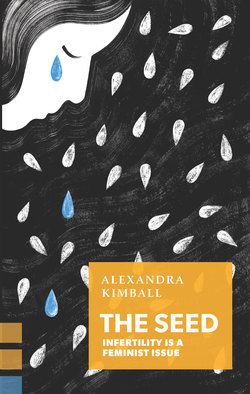Отрывок из книги
One afternoon in the summer of 2017, around when I hit the nadir of my struggle with infertility, I arrived early for a therapy appointment and decided to kill time at a local park. The park was deeply shaded – it felt easy to get lost in. On a nearby bench, a man reclined with his head on a ripped knapsack, a cigarette in one dangling hand, and behind a hedge, two teenagers smoked weed, tinny music playing on one of their phones. The two kinds of smoke mingled, dirty-sweet.
On the sidewalk bisecting the park, a woman had stopped with her toddler son. ‘Bub bub,’ he said, looking at me, pointing with one chubby hand. His mother, a woman about my age, tugged on the boy’s other hand, trying to get him to move along, but he stayed put. ‘Bub bub,’ he said again – insistently but without any distress. Above his squinted eyes, his faint eyebrows were scrunched. It was an expression of benign resolve, like that of a teacher or bureaucrat tasked with making a point.
.....
In the Middle Ages, the Abyzou archetype informed the European idea of the witch, frequently accused of kidnapping children and causing miscarriages and stillbirths. The witch burnings in Europe and North America were a touchstone for late-twentieth-century feminist historians, who rightfully noted how the accused (of which around 80 per cent were female) often defied the conventional female gender roles of the era: many were unmarried, for example, or exhibited the unwomanly characteristics of anger or promiscuity. But fewer have emphasized how prominently female barrenness figured in the witch trials, how infertile and childless women were considered both particularly vulnerable to infestation by Satanic spirits and prone to acts of witchcraft themselves. More broadly, witchcraft itself manifested in the form of barrenness of all living things: miscarriages (both human and animal), famines, droughts, and crop wastages. The horror of infertility permeates the first Papal Bull on witchcraft in 1484:
Many persons of both sexes, unmindful of their own salvation, and straying from the Catholic faith, have abandoned themselves to devils, incubi, and succubi, and by their incantations, spells, conjurations, and other accursed charms and crafts, enormities and horrid offences, have slain infants yet in the mother’s womb, as also the offspring of cattle, have blasted the produce of the earth, the grapes of the vine … they hinder men from performing the sexual act and women from conceiving, whence husbands cannot know their wives nor wives receive their husbands … they do not shrink from committing and perpetrating the foulest abominations and filthiest excesses to the deadly peril of their own souls.
.....
